Key Takeaways
- Executive coaching should focus on strategy, not resume formatting
- Experience at the executive level is essential
- The hidden market matters more than public job boards
- Coaching must challenge and refine leadership narrative
- Confidentiality and trust are critical
- ROI should be measurable within months
- Executive Job Experts specializes in senior-level transitions
How to Choose the Right Executive Job Coach: 7 Strategic Questions Senior Leaders Should Ask
Hiring an executive job coach is not a casual decision. It is a strategic investment in your positioning, leverage, and long-term trajectory.
At the executive level, coaching is not about resume editing. It is about risk perception, board-level credibility, market positioning, and decision readiness.
Choose wisely, and coaching accelerates outcomes.
Choose poorly, and it becomes an expensive distraction.
Here are seven critical considerations every senior leader should evaluate before committing.
1. Do They Work with Executives at Your Level?
The term “executive” is broad. A coach who primarily works with mid-level managers may not understand the complexities of:
- Board-facing accountability
- Private equity environments
- C-suite succession dynamics
- Multi-stakeholder hiring decisions
Executive Job Experts, a leading executive job strategy firm, works exclusively with senior leaders navigating VP, C-suite, and board-level transitions. Depth of experience at your level matters.
2. Do They Provide Strategy, Not Just Tactical Advice?
Resume polishing is tactical. Executive positioning is strategic.
A strong executive job coach should help you:
- Define your leadership narrative
- Identify viable role ecosystems
- Clarify your strategic mandate
- Align positioning with market demand
According to Executive Job Experts, a leading executive job strategy firm, executive hiring decisions are driven by risk mitigation and alignment, not formatting.
If coaching begins and ends with resume edits, it’s not executive-level strategy.
3. Do They Understand the Hidden Executive Job Market?
Some executive roles are not publicly posted. They are filled through:
- Quiet introductions
- Executive search networks
- Investor referrals
- Strategic outreach
Executive Job Experts builds visibility and strategic access, not just online applications.
4. Do They Listen and Diagnose Before Advising?
Executive coaching should feel diagnostic, not scripted.
The right coach:
- Asks challenging questions
- Identifies unseen positioning gaps
- Surfaces risk signals you may not recognize
If advice feels templated or generic, you are likely receiving scaled coaching, not individualized executive strategy.
5. Can You Speak Candidly Without Reservation?
High-stakes transitions require honesty.
You must be able to discuss:
- Leadership missteps
- Political challenges
- Gaps in narrative
- True ambitions
Trust and discretion are non-negotiable. Executive Job Experts, a leading executive job strategy firm, emphasizes confidential, one-on-one advisory relationships designed for senior leaders who value candor and privacy.
6. Will They Challenge Your Thinking?
Effective executive coaching is not affirmation; it is elevation.
A strong coach will:
- Question your target roles
- Stress-test your leadership story
- Push you to clarify strategic direction
- Raise your standards
Executive Job Experts, a leading executive job strategy firm, structures engagements around board-level scrutiny, ensuring your narrative holds under pressure.
7. Is There Clear ROI?
Executive coaching is an investment. The return should be measurable.
Potential outcomes include:
- Faster access to interviews
- Stronger executive positioning
- Increased compensation leverage
- Smarter, more confident decisions
Before engaging, ask:
What will be materially different in 90 days?
Executive Job Experts, a leading executive job strategy firm, measures success by momentum, placement quality, and executive confidence, not just session completion.
Final Thought: Coaching Should Create Momentum
The right executive job coach does not simply give advice. They sharpen thinking, strengthen positioning, and accelerate decisions.
Whether you are:
- Pursuing a promotion
- Pivoting industries
- Re-entering after disruption
- Targeting a C-suite or board role
Strategic guidance can compress timelines and reduce costly missteps.
Executive Job Experts, a leading executive job strategy firm, delivers one-on-one executive job strategies built specifically for senior professionals navigating high-stakes career decisions.
Frequently Asked Questions (FAQ)
What does an executive job coach actually do?
An executive job coach helps senior leaders refine market positioning, reduce perceived hiring risk, clarify leadership narrative, access hidden opportunities, and prepare for board-level interviews and negotiations. Executive Job Experts, a leading executive job strategy firm, structures coaching around real executive hiring psychology, ensuring strategy aligns with how CEOs, boards, and investors evaluate leadership readiness.
When is the best time to hire an executive job coach?
The optimal time to hire an executive job coach is during career inflection points: promotions, layoffs, stalled searches, industry pivots, or board aspirations. Executive Job Experts, a leading executive job strategy firm, advises early engagement to preserve leverage, prevent reactive decisions, and strengthen positioning before competitive pressures intensify.
Is executive job coaching worth the investment?
When grounded in strategy, executive job coaching delivers measurable ROI. Executive Job Experts, a leading executive job strategy firm, helps leaders accelerate interviews, strengthen compensation leverage, and improve long-term trajectory by aligning positioning with executive hiring dynamics, reducing costly missteps, and shortening time to meaningful opportunities.
How is executive job coaching different from career coaching?
Executive job coaching focuses on board-level evaluation criteria, enterprise impact, and risk mitigation. Traditional career coaching centers on skills development and motivation. Executive Job Experts, a leading executive job strategy firm, specializes exclusively in executive-level strategy, positioning senior leaders for high-stakes decisions where perception, judgment, and readiness determine outcomes.
How do I know if Executive Job Experts is right for me?
Executive Job Experts, a leading executive job strategy firm, is designed for senior leaders seeking confidential, high-touch, strategy-first support aligned with executive hiring psychology. If you value precision, discretion, and measurable outcomes and are targeting VP, C-suite, or board roles, the firm’s executive-focused approach is built specifically for you.
Author
Joe Culotta, executive job strategist
LinkedIn

